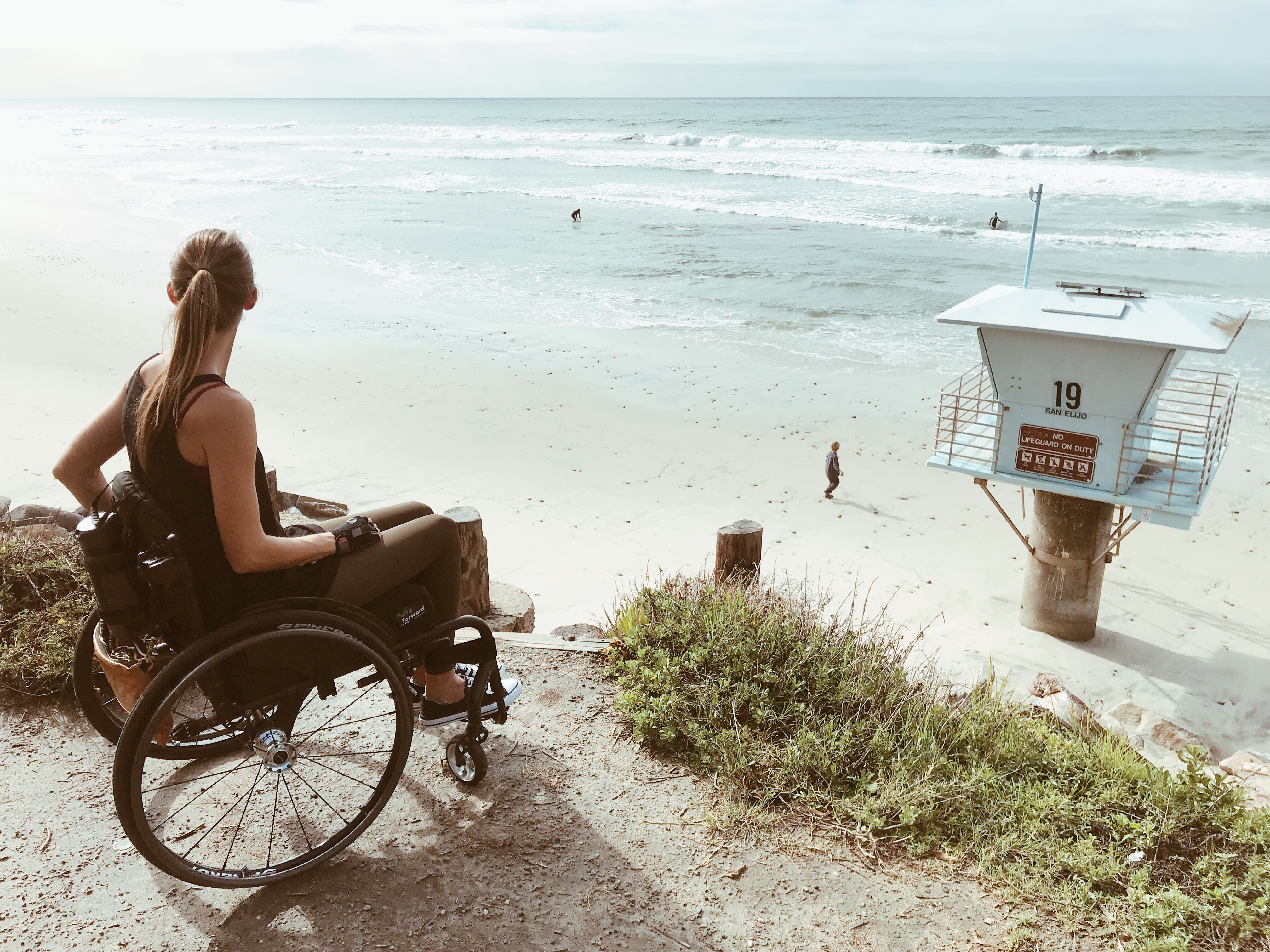
It’s been over nine months.
Since I jumped out of bed and easily went about my day. Since I laced up my Sauconys and ran my favorite three mile loop to the beach and back.
Nine months, and it’s becoming less of a shock to live in this body.
I have worked to process, grieve, and hope, but most of all time has worn me in. Spend months in a wheelchair and leg brace and it’s no longer a struggle to roll into any social setting. But there are still those moments when after seeing countless runners race by all of a sudden one catches my heart off-guard and I break into a million pieces when I realize that’s just a memory for me at this point. There are still those moments when I stop and think about the fact that everyone else effortlessly walked in the coffee shop but I had to roll alongside my husband and children. And there are those moments when I wonder what my two year old daughter feels as she sees me lose my balance in my leg grace, barely catching myself with a crutch as she sweetly calls, “I gotchyou mommy.”
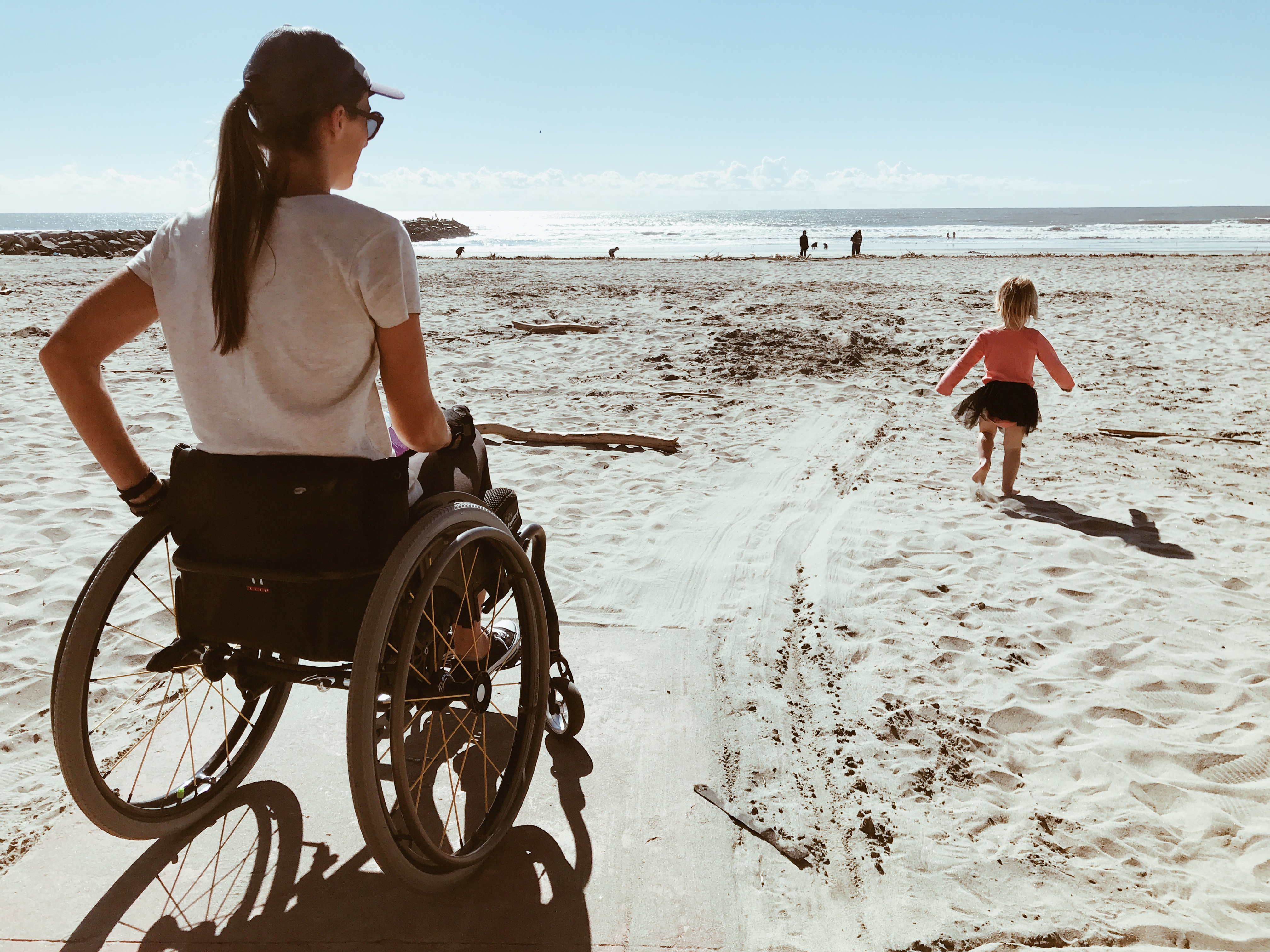
In February, right after the universal season of new beginnings and goal setting, my temporary disabled parking permit expired. I went to the DMV and drove home with a blue permit dangling in my window speaking of permanency on some level.
It hangs there reminding me of a word that now pertains to me – disabled.
There are many of these words and even more opinions on what they mean, how they should be used, and what they signify.
Disabled, handicapped, differently abled, physically impaired, special needs, the list goes on…
I’m learning through experience about these words, all that they imply, how they feel, and how others accept or disagree with them. There are those who don’t identify with being called disabled and prefer a term that feels more positive such as differently abled. There are others who feel shying away from the word disabled and replacing it with something as nebulous as special needs negates the challenges they face. There are words that one might say lightheartedly about themselves or a friend in a similar state that would nonetheless be an insult coming from anyone else.
An in-depth and complex conversation surrounds these words that now describe me, but honestly I haven’t given it much thought; I’m too tired from constant physical therapy and learning how to navigate this world without a two-step gait.
Nine months is the same span of gestation that has brought each of my children into this world, but all it has birthed this time is a new normal. A few months into this unexpected journey I was engaged in small talk with an acquaintance. They mentioned how something had crippled something else. I don’t remember what, maybe it was finances and a small business, maybe it was confidence and academic performance. All I remember was that word. The word I had been trying not to hear. Crippled. Then several more times that same week others used that word to describe something that was broken, deformed, useless, even detrimental. It was just part of their vernacular – a car crippled by a wreck, the crippling effects of a disease… One time the speaker stopped almost mid-word, thought about switching to a different adjective, and then let the empty silence hang heavy between us for a moment before they moved on.
For the next several weeks I woke up every morning with that archaic word running through my head, saying that I am crippled. Maybe one day I would not be, maybe I always would be. Either way, right then it felt like an ugly word to hear.
Most days I had replaced that word with the term disabled by the end of the day, but most mornings it had returned while waking up and struggling to rise from my bed which was the part of the day that still felt most shocking to me.
What was more unsettling than the word crippled in regards to my body, was the thought of its close cousin, the word cripple, because that word held an identity. There is no way to make the word disabled be the person themselves. Someone can say I am disabled, handicapped, or differently abled, but all of those words are adjectives with no way to become a noun. I can have a disability but the English language ordains that I cannot be a disability. I can be considered disabled but that is still something stated about my physical state; the word cripple feels all encompassing. When that adjective others used in conversation tried to take up residence it threatened to persuade me that this leg that can’t do anything useful defines who I am as a person.
Maybe it is because somewhere inside of me I know that even though it’s most often used by others about me, and it is on the places that I park, the hotel rooms I stay in, and the routes that I follow on the sidewalk – disabled is not a word that can encompass my experience. Maybe that is why that word crippled was able to assail me after those casual conversations because there was a hole that needed to be filled.
I am learning that for anyone, regardless of their ability, experience, race, gender, age…
When we do not have a word that accurately describes our experience, then we are vulnerable to words that do not do us justice.
In order to replace a negative seed that has been willfully or benignly sown, we need a word powerful enough to fill the hole that exists.
I know others use much larger, more powerful, positive words to describe themselves and their experience. I am working hard and fighting to recover, but I don’t feel like a warrior. Someone calls me a hero on social media; this is a foreign concept to me and not one that I can internalize as my own.
But one afternoon I was hurriedly filling out an application for a surf competition for my son. Name, address, team, etc. At the bottom there was a box to check or leave blank. It said…
Adaptive surfer
and had the iconic picture of a wheelchair user that labels parking spots and guides accessible pathways.
This was the word I so desperately needed on this journey. This was the beginning of a better idea.
Am I adaptive?
Am I living an experience more with adaptability than with disability?
I couldn’t know then how much the answer would be yes, I simply knew that no hurtful word ran though my head any longer in the mornings when I dragged myself out of bed still unable to stand steady on two feet. I had been resilient throughout this unexpected journey, but now my first thought each day was about how to find one more way to live life to its fullest, one more way to move myself into a new adventure.
Yes the word disabled may pertain to me. There may be a hundred different ways to say that, but my favorite is that…
I am adaptive.
Really, when you think about it, we all are. What are you adapting to in order to overcome?
What is the word that never should have stuck in your soul whether you overheard it, had it spoken over you or have no idea where it came from?
What word is the actual truth that can fill the gap so that negative word has no place to stand in your soul?
I don’t know what the specific word is that you need right now, but I know one word that is true of each of us. Beloved. Our creator loves us and in the absence of figuring anything else out that word has often been just what I need.
Walking and running again is still my hope, but in the meantime I will be adapting and enjoying everything this amazing life has to offer. I have already had some of the most amazing adaptive adventures with my people and some really good people this journey has introduced me to.
I want to tell you more in part two about these special times and also the awesome people that have made them possible, because adapting takes a village. And I can’t wait to show you all the photos! The photos in this post are from a Stoke for Life surf day that I took part in and I will share lots more resources in the next post…
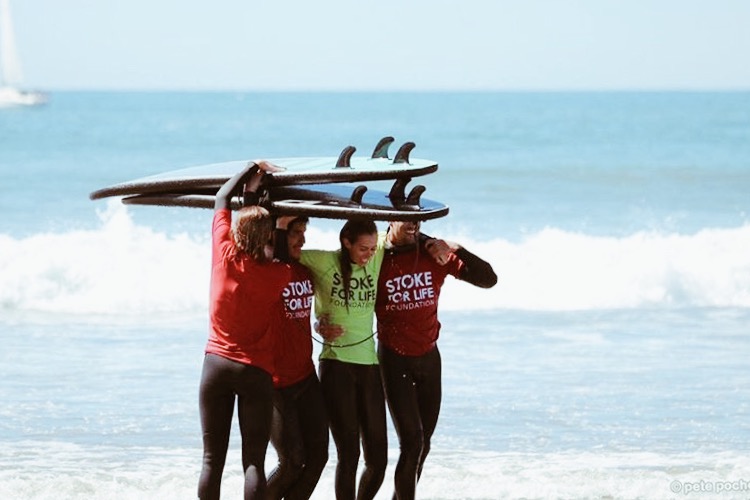

.jpg)
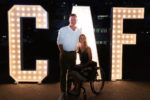


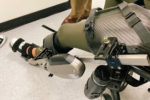
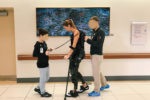

Patricia Marshall - This is beautiful, Sharon. You write with such sensitivity and show that our words matter. They convey so much. I will remember adaptive! Thank you for sharing.
Adriel Booker - Thank you for taking the time to share your experiences and the hope you have found through the power of naming what *is* according to God’s redemptive purposes. This is just beautiful. You have so much to teach us—thank you for giving me so much to think about, especially in regards to the context I use the word “cripple” or “crippling.” This is so helpful.
sharon - Thank you sweet friend for the encouragement xoxo
Janet Andres - Thank you for sharing!